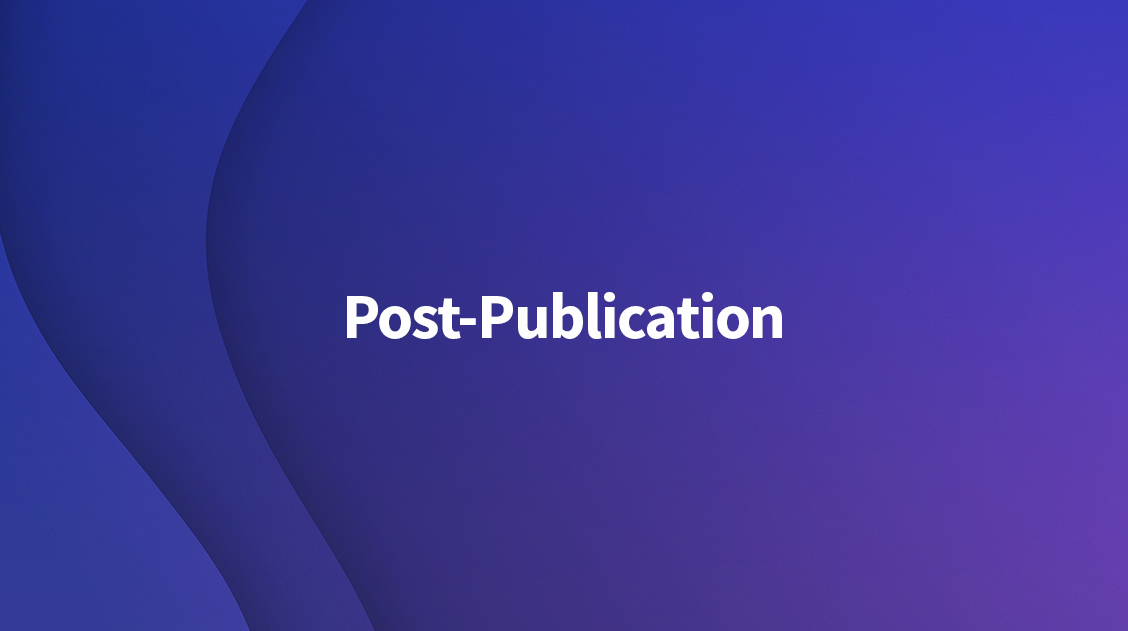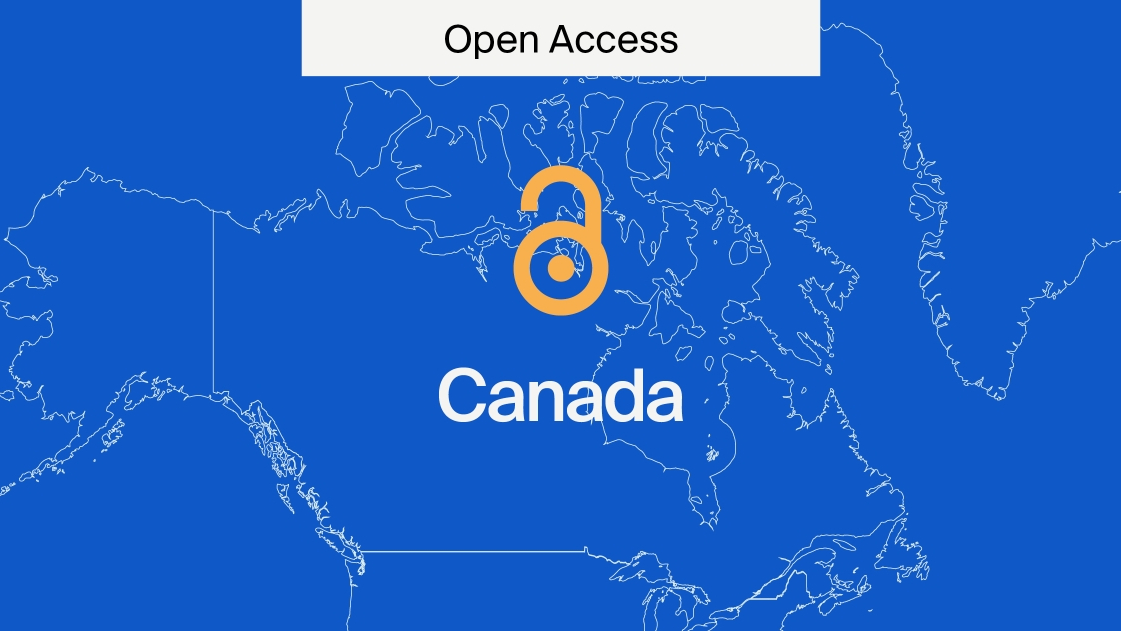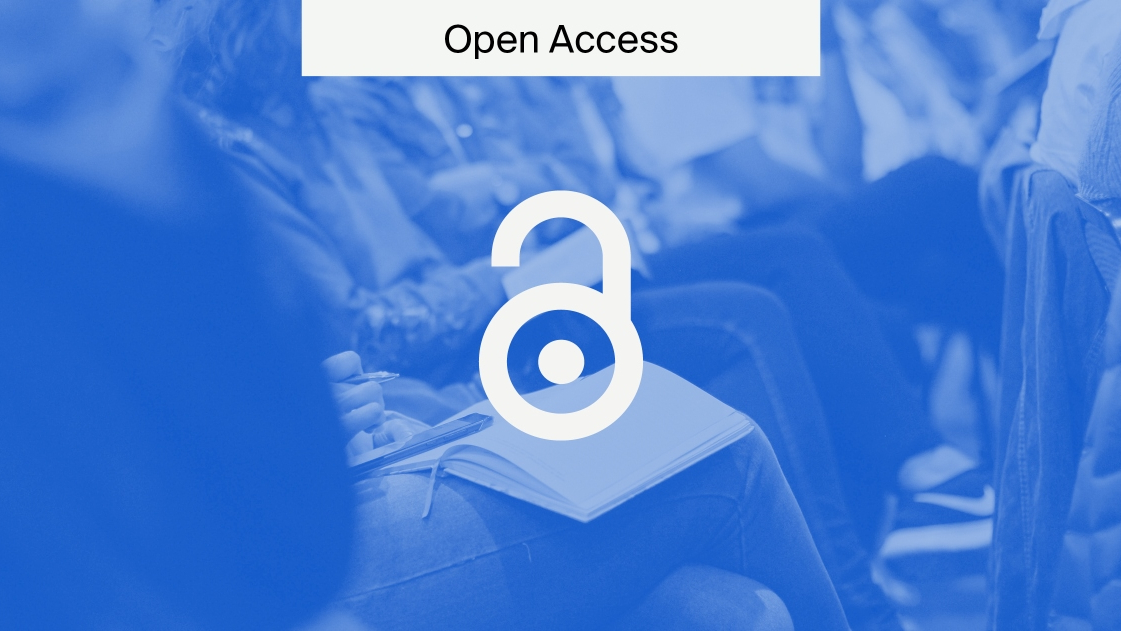
Post-Publication Explained
In this article, we will provide a general overview of some of the different stages of post-publication and, more specifically, what you can expect from MDPI’s post-publication process when publishing with us.
DOI Registrations
DOIs are very useful for quickly identifying academic research. Here’s why:
What Is a DOI?
A DOI, or digital object identifier, is a persistent identifier that comprises a string of numbers, letters, and symbols that is unique to a digital document or object and is standardized by the International Organization for Standardization (ISO).
In terms of academic research, after a scientific paper is published, it may be found in many different indexing databases or websites, and the URLs for these different sources will all be different, which can cause problems with citing and locating the original publication on the journal’s website.
Therefore, assigning a DOI to each publication allows readers to use a numerical identifier to track and find the original source. This makes research objects easier to cite, link, and reuse, representing a kind of ‘digital fingerprint’, meaning that those who wish to identify a particular research source can do so quickly and easily.
Does MDPI Use DOIs?
MDPI is a participating member of the DOI Registration Agency called Crossref. We ensure that all papers published in our journals have registered DOIs.
Every Crossref member is given a specific DOI prefix to use, which is then combined with a suffix of the organization’s choosing to create a full DOI for each individual document. For MDPI academic journals, the prefix “10.3390” is used, followed by the journal’s name (or abbreviation), and a unique set of numbers. These numbers correspond to the journal’s Volume, Issue, and article number of each specific publication. For example, the paper entitled “Reactive Oxygen Species and Antioxidant Defense in Plants under Abiotic Stress: Revisiting the Crucial Role of a Universal Defense Regulator” was published in MDPI’s journal Antioxidants, in Volume 9, Issue 8, and was given the article number of 681. Therefore, the DOI of 10.3390/antiox9080681 was assigned to this paper.
Whenever a new paper is published within our journals, its data are delivered to Crossref about 24–48 hours after publication. Each document’s DOI is then activated and registered with Crossref, which means that a unique DOI has been officially (and permanently) assigned to each publication, according to the ISO regulations. This process is referred to as content registration, and it is included in the services that we provide to all authors as part of the post-publication process within any MDPI journal.
Post-Publication Promotion
Promoting research after it has been published is incredibly important. Below, we describe how MDPI ensures that the research we publish gets a wide reach.
How Does MDPI Promote Research Post-Publication?
The post-publication distribution of our authors’ research is one of MDPI’s top priorities. This ensures high visibility throughout the academic community. We do this in a variety of ways, as detailed in the sections below.
Open Access
Since our journals operate under an open access framework, all articles published with us are immediately available for anyone to access for free worldwide, thereby ensuring a greater share of the academic community can read and cite our publications.
Open access articles also give publishers the ability to better promote authors’ research. After every MDPI journal’s Issue is released, all authors who published in that Issue, along with the journal’s subscribers, receive an email notifying them about the Issue’s release. This email includes a full list of publications within that Issue, along with direct links to access the papers on the journal’s website. This provides scholars with access to articles relevant to their research and topics of interest, and can serve as a connection to other researchers within their field.
Indexing and Digital Preservation
A first stop for many scholars searching to find quality research is within indexing databases, which serve as accessible routes that allow not only the discovery of relevant publications, but also of new scientific journals.
For this reason, MDPI strives to continuously expand the coverage of our publications within leading multidisciplinary databases, such as Web of Science, Scopus, EBSCO and ProQuest. We also focus on ensuring the coverage of our journals within as many scope-specific databases as possible, such as the databases of the U.S. National Library of Medicine (NLM) (PMC, PubMed, and MEDLINE), Inspec, Chemical Abstracts (CAS), Food Science and Technology Abstracts (FSTA), and many more. The coverage of our journals within field-specific databases ensures the dissemination of our authors’ impactful data to the most relevant scientific communities.
Moreover, we also partner with various universities and government organizations to ensure that our journals are listed within country-specific journal ranking lists, and deposited into relevant institutional repositories, which are often required by funders or institutions for authors to publish with a journal.
An in-depth article about the basics of indexing and related FAQs can be found on the MDPI blog.
Partnering with Influential Organizations
MDPI delivers article data to and partners with many organizations who work with researchers to promote their academic and editorial contributions. A few examples of these organizations are Crossref, ORCID, and Web of Science Reviewer Recognition Service (formerly Publons).
Preprints Service
If you have posted a preprint version of your research article through MDPI’s Preprints service, the abstract and PDF will be updated post-publication, to provide a link between the preprint and the published article.
Research-Sharing Platforms
Immediately after publication, MDPI automatically adds your article to your profile on SciProfiles. These platforms facilitate open scientific and academic discussions through interactive commenting and recommendation functions.
MDPI Books
Though our MDPI Books service, many of our publications within Special Issues are compiled into books that are available to purchase as hard copies. These are promoted via social media and presented at various conferences. The MDPI Blog previously published an article detailing the services provided by MDPI Books, which can be found here.
How Can Authors Promote their Research Post-Publication?
There are a number of ways that researchers can promote their work post-publication.
Social Media
Research can be shared and tracked via social media by sharing a link to it on various social networks, such as Twitter and Facebook.
It is important to be tactical in how you do this; for example, tagging @MDPIOpenAccess, relevant people in your field, and the journal you published with, will lead to higher visibility. You can also send a short text promoting your work to the MDPI Assistant Editor who was your correspondence throughout the publication process, who will then share it on the journal’s Twitter account.
Asking the research institution or society you are associated with to share your article to their social media is also a good way increase the number of people who have accessed your research.
Sharing Links Post-Publication
Sharing a link to your work is one of the simplest ways to get your research out there. You can do this by sending the link directly to your peers or others in the relevant field. You can add this link, along with the title of your article, to your email signature, as well as to your personal and institutional websites.
Academic Research-Sharing Platforms
You can create a profile on academic research-sharing platforms, which allow you to post a short summary of your article for others to read. Popular platforms include SciProfiles, ResearchGate, Academia.edu, and Google Scholar Profiles.
You can also register for an ORCID, which is a persistent digital identifier for authors, and add information related to your research to your profile.
Depositing your research article to academic repositories, e.g., those run by your academic institution, can also help to increase the accessibility of your work.
Conferences and Webinars
You can present and discuss your research at conferences by delivering a presentation or presenting a poster.
MDPI runs Sciforum, an event planning platform that allows researchers to take part in conferences in their fields.
Videos
Producing and sharing a video summarizing your article is a good way to share your research in an easily digestible medium.
Wikipedia
You can find a topic relevant to your research among the millions of Wikipedia pages and add a reference to your research article post-publication.
Post-Publication Corrections and Retractions
While MDPI strives to ensure that all papers are published in their final version, some errors may occasionally be found post-publication, either by the authors or our readers. When this occurs, we work very closely with our authors to resolve any meaningful errors, and, when necessary, to alert the journal’s readership by publishing Correction or Retraction notices.
Each publisher takes a unique approach to how they handle paper corrections and retractions. Below is a brief description of MDPI’s policy, which are also detailed on our website.
Corrections
Different kinds of corrections may be made to papers post-publication. We describe these in the following sections.
Minor Errors
Correcting minor errors within the main text of a publication that do not affect the message or readability of a manuscript is not permitted, regardless of who introduced the error. Examples of these include spelling or punctuation errors.
Errors in Metadata
If deemed appropriate by the Editorial Office, errors in the metadata of a manuscript (such as errors in titles, author names, or abstracts) will be updated and re-published. All databases that the paper is indexed in will then be notified to ensure they also make the necessary changes.
Corrections
The following types of corrections qualify for an update, on the condition that a Correction notice is also published. A Correction notice is a separate publication that is linked to the paper to inform the journal’s readership that a meaningful change has been made to the original publication. As with metadata errors, all relevant indexing databases will also be informed to ensure that their records are up to date.
- Errors that may affect the scientific interpretation of a paper (e.g., a misleading section of an otherwise reliable publication or an error in the data or interpretation of a paper, which does not affect the final conclusions).
- Scientifically relevant formatting changes (e.g., missing or unclear figures or tables).
- The addition or removal of an author(s) from the authorship list (including entire affiliations).
- The addition or removal of an entire reference.
- The addition or removal of a significant amount of text within the back matter (e.g., funding, author contributions, or acknowledgements).
Author name change policy
Full details on MDPI’s updated author name change policy, which came into effect in February 2021, have already been published on the MDPI Blog.
Retractions
On rare occasions, a paper needs to be retracted. Retractions may be necessary due to plagiarism, ethical breaches, the fabrication of data, errors made during the research process, or other reasons. In these cases, articles must be removed from the academic body of literature to ensure its integrity. MDPI is a member of the Committee of Publication Ethics, or COPE, and adheres to its recommendations for such cases.
When a paper is determined necessary to retract, MDPI will publish a Retraction, to alert the journal’s readership. The original publication is amended with a “RETRACTED” watermark, but will still be available on the journal’s website for future reference. However, retracted articles should not be cited and used for further research, as they cannot be relied upon. Retractions are published using the same authorship and affiliation as the paper being retracted, so that the notice and the original retracted paper can be properly found by readers within indexing databases. The Retraction notice will also be published in the current Issue of the journal. Partial Retractions might be published in cases where results are only partially wrong.
A paper will only be completely removed from MDPI’s website and relevant indexing databases in very exceptional circumstances, where leaving it online would constitute an illegal act or be likely to lead to significant harm.
Academic Video Service
MDPI is pleased to announce the launch of our Academic Video Service, which aims to enhance the visibility of our journals’ manuscripts. This comprehensive service includes professional scriptwriting, animation design, and strategic promotion. To celebrate the launch of this service, we are offering a limited-time promotional discount. For further information and to see examples of Academic Videos we have created, please visit our website.











This article provides valuable insights into the post-publication process, emphasizing the importance of transparency and communication in academic publishing. The detailed explanations of the various stages help demystify the complexities faced by researchers. Thank you for shedding light on such an essential topic for the academic community.
Hi,
Thanks for your kind words.
All the best.
I’ve just been informed by my University Central Research Audit Committee that my affiliation on a paper published about 3 months ago is missing the Department name from my affiliation.
This is turning out to be quite a big problem for me, actually it’s a bit of a disaster due to the way the research productivity accounting policy at my University works.
How feasible is it to make this small change? At this point I’m willing to pay if necessary to get this change made, such is the gravity of the situation for me.
Hi,
Thanks for reaching out to us with your issue.
This is a matter that the editorial staff of the journal you published with would have to address. Please reach out to their email, which can be found on the journal’s homepage, and explain your situation in as much detail as possible.
Hope this answers your question.
it is very nice post thanks
Hello,
I´ve just published and article on MDPI as a co-author and I received a claim from collegues of mine because I did not include on the aknowledgement section a note thanking for the use of data I drawn from publicly available sources, under the framework of a project we were working on together. So I will like to know wether it is possible to update the article (or include a correction note) to add a few thankful words at the aknowledgement section only and if so, how should I proceed?
Hi,
Please get in contact with the editorial department of whichever journal it is that you are publishing with. You can find their contact details on the journal homepage.
Hope this helps answer your question.
thats perfect! thanks
Hi
My article was accepted and published on the site but I have not yet received DOI
I see this message (registering DOI).
What to do?
thank you
Hello,
A DOI is issued after publication, you should receive this shortly. Hope this helps.
How long does it approximately takes for the published papers to be indexed by Scopus?
Hello Aan,
Usually it is quite quick, typically less than a week. Please note that there may be exceptions to this. Hope this helps.
Hello, is it possible to correct ‘one letter’ in the format of my affiliation? This is extremely important. The paper was published around 6 weeks ago. Still not indexed in WOS.
Hi Alnada, thanks for getting in touch.
Please contact the journal’s Editorial Office regarding this matter.
You can review MDPI’s Policy Regarding Corrections and Retractions for information about this.
I recently published my paper in MDPI- Brain Sciences. Although it has been a week, but I can’t find it in google scholar. How long does it usually take for a MDPi paper to be accessible in Google Scholar?
Oveis,
The amount of time can vary for a paper to show up online. The specifics are difficult for us to say as we do not have access to any of these systems. We encourage you to reach out to the editorial office of the journal (in this case Brain Sciences) for more information.
How long does it approximately takes for the published papers to be indexed by Web of Science?
Hi Stephen, thanks for getting in touch.
Papers are indexed in the Web of Science 4-8 weeks after the issue release date.
What about the most difficult article pricessibg charge?
Hi Seko, thanks for the comment.
We have a page dedicated to Article Processing Charges (APC) Information. You can find out about journal fees there. You can also contact the journal’s Editorial Office for any other questions.